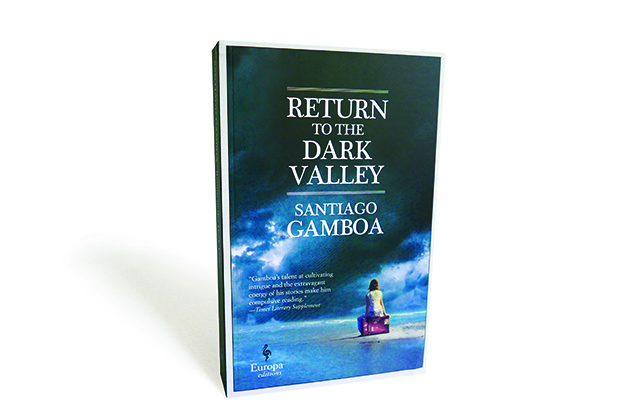This article is adapted from AQ’s print issue on peace and economic opportunity in Colombia
The only thing we can do is tell stories and believe that one day we will be saved by them,” says the narrator of Colombian novelist Santiago Gamboa’s nightmarish new thriller, Return to the Dark Valley. The narrator, known only as the Consul, is an observer of life: a Colombian expatriate living in Rome, quietly penning a study of the French poet Arthur Rimbaud. His quiescence is disrupted when he receives a mysterious message from Juana, an old flame, bidding him to return to Madrid.
Once in Spain, the Consul’s noir-infused story unfolds against the mounting drama of a hostage crisis, with the Irish embassy overtaken by the Nigerian terrorist group Boko Haram. With this tense opening sequence, Gamboa introduces us to the catastrophe of civilization: refugee crises and sex tourism, volatile markets and global pandemics, and gruesome media spectacles enacted against the constant hum of the 24-hour news cycle.
Return to the Dark Valley is a bloody and sordid potboiler with mythological undertones that captures the cruelties and longings of the rootless, modern world. It alternates between the voices of the Consul, a young, brilliant student of literature named Manuela—whose traumatic past gives the book its sinister climax—and an assassin known as Tertullian, a self-proclaimed romantic philosopher with Nazi sympathies and a taste for torture.
Ghosting the pages also is the crusty, restless spirit of Rimbaud, patron saint of all abject wanderers. These characters are vagabonds, echoes of one another, living in borrowed flats, hotel rooms, and hospital cells as they float between world cities. In the first part of the novel, the shifts between these points of view—before the characters’ inevitable convergence in Madrid—produces a kind of perspectival jet lag in the reader, which is perhaps the point.
The narrative simulates the connection and disjuncture, the acceleration and pause, of a networked global society. Fragmented, potholed with interruptions, the narrative surges forward at a manic pace, and then abruptly slows as if the action were buffering: “Wait while I pour myself a little more gin, because what I’m about to tell you isn’t easy,” Tertullian tells the Consul. Each character confides their tale to the narrator, for he is their confessor and ventriloquist. He is the addressee, the keeper of stories. The function of a consul, after all, is to mediate between cultures, an elected outsider and an avatar of globalization itself. (Gamboa himself served as a diplomat in New Delhi.)
Once the unlikely group is assembled, in a course of action that veers the novel toward the fantastic, the Consul, Juana, Manuela and Tertullian head back to their native Colombia to avenge a wrong. Here the novel makes its final departure from any kind of psychological realism, as Gamboa’s characters are chiefly driven by Old Testament motives of lust and rage. And yet each one must learn to confront and heal from their past. Haunted by history and abandoned by God, how to reconcile the rawness of our suffering, Gamboa suggests, our struggle to remain intact?
The novel is a reflection on what it means to journey, as one among the teeming masses, searching for meaning, the salve of story, in a wounding world. If we are knit closer than ever before—at no other point in history have we seen such rapid transmission of ideas, bodies, money and products across borders—then why are we still so lonely? What else do we desire, as the Consul writes towards the novel’s end, but to know “what the person has been when he or she is alone, far from you, in that implausible world that is someone else’s life, whose echo sometimes reaches us?” What else do we have but story?
—
Ventura is a writer based in Iowa City





